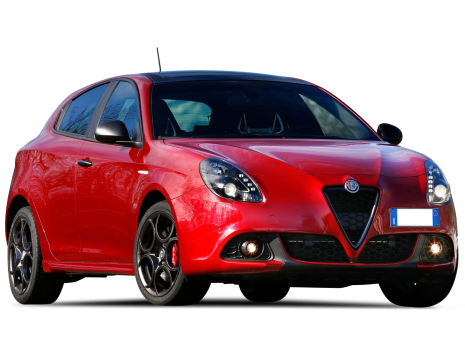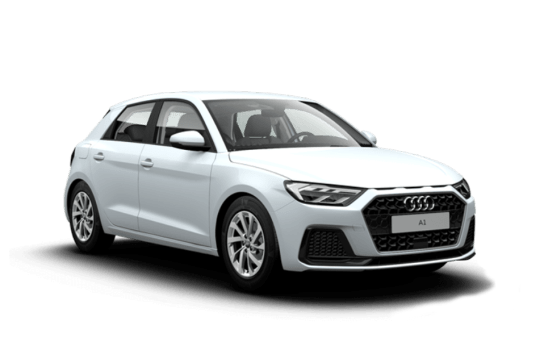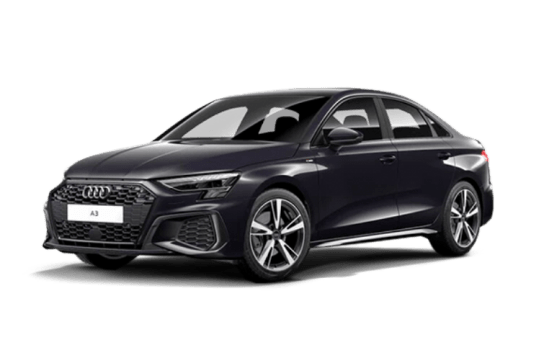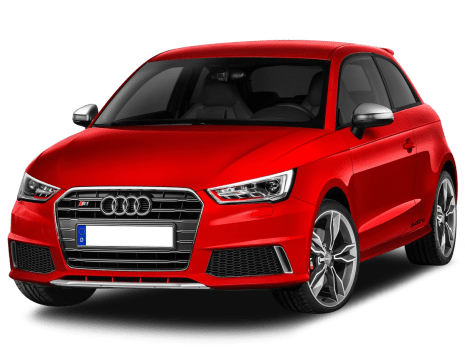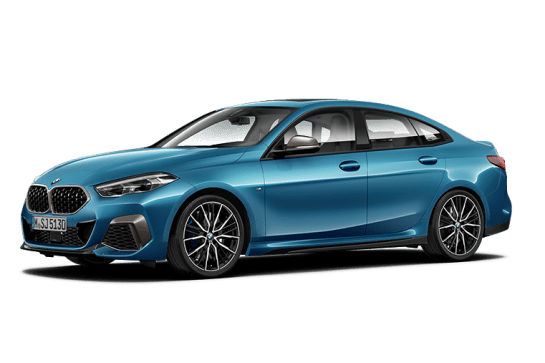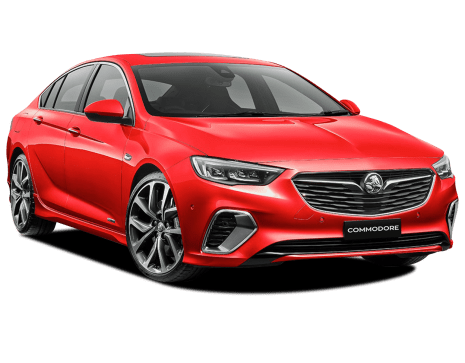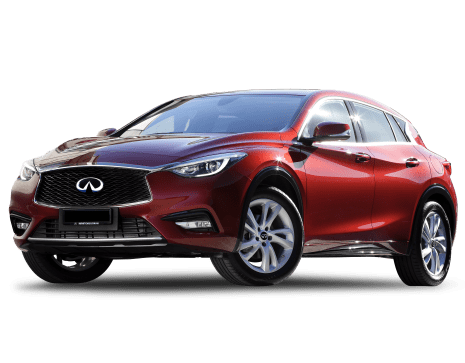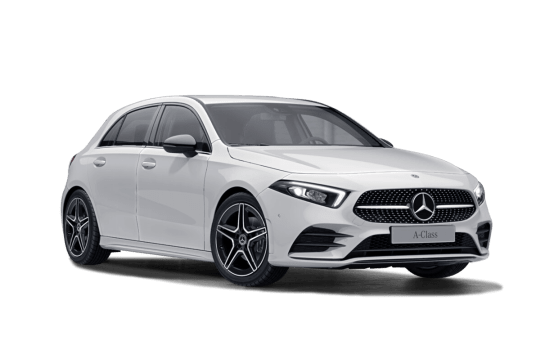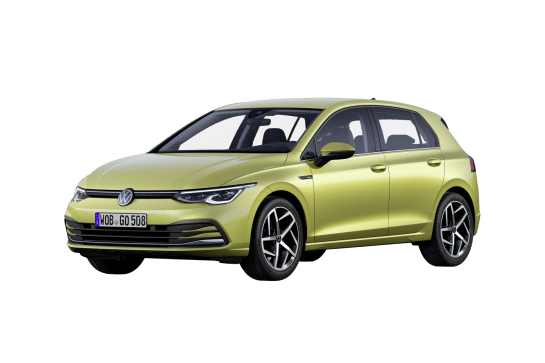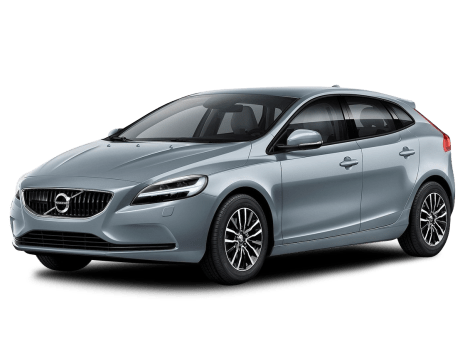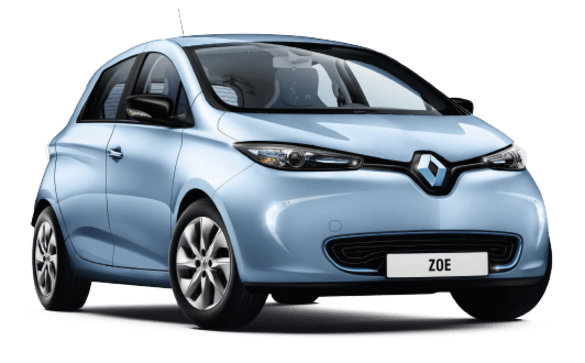
Renault Zoe VS Ford Mondeo
Renault Zoe
Likes
Dislikes
Ford Mondeo
Likes
- Well equipped
- Practical and refined
- EcoBoost engine hammers
Dislikes
- Hit and miss styling
- Inconsistent ride
- SUV-like seating position
Summary
Renault Zoe
Renault chairman and CEO Carlos Ghosn may look like a Bond villain, but rather than threatening to end the world he's intent on saving it.
In October last year he launched Groupe Renault's 'Drive the Future 2022' strategic plan, which included a commitment to "eight pure electric and 12 electrified models as part of the [Renault] range" within five years.
But he didn't mention the head start, because Renault already had several pure electric vehicles in its line-up at that point, including the subject of this review.
In fact, the Renault Zoe has been on sale in France since 2012, and stands as Europe's best-selling electric vehicle.
In late 2017, Renault Australia dipped its toe in the electrified waters (risky...) by bringing the Zoe here within a "business-to-business and business-to-government framework."
And in July this year, due to allegedly popular demand, it was made available to private buyers through "selected dealerships"; currently two in Melbourne, and one each in Sydney, Adelaide, Perth and Brisbane.
Just under $50,000 for a city-sized hatch is hardly cheap, but it's entry-level territory for electric vehicles in this market. And what price can you put on helping to save civilisation as we know it?
Let's find out.
| Safety rating | |
|---|---|
| Engine Type | — |
| Fuel Type | Electric |
| Fuel Efficiency | —L/100km |
| Seating | 5 seats |
Ford Mondeo
Yes, this is a Ford Mondeo review in Anno Domini 2018.
This assumes, of course, that Ford even still sells the Mondeo, and despite the fact that it's the third best-selling car in the segment, Ford oddly doesn't seem keen to talk about it.
Why? Perhaps Ford doesn't want anybody to get overly attached to a sedan-y hatch that has a cloudy future in an ever-shrinking mid-size market. After all, there's still a rather vocal sect of the population feeling burned by the end of the Falcon dynasty.
You'd also be right to assume those numbers are padded out a fair bit by corporate leases. Salesmen in England were long referred to as Mondoe Men for a reason. I'll tell you this much, though, I'd be pretty stoked if I got one of these Mondeos as a lease.
As an FG Falcon owner, for most intents and purposes it would even be a half-way decent replacement for my large sedan. Stick with me as I explain why.
| Safety rating | |
|---|---|
| Engine Type | 2.0L turbo |
| Fuel Type | Diesel |
| Fuel Efficiency | 5.1L/100km |
| Seating | 5 seats |
Verdict
Renault Zoe7.8/10
The Renault Zoe is a fun to drive, ultra-efficient, practical little hatch. But the dollar-shaped elephant in the room is its price. Without the government ZEV subsidies offered in other markets, it's wickedly expensive, and with fresh competition in the shape of a new 'normalised' Nissan Leaf coming soon it'll have to work hard to wean more than a handful of small-car buyers off their fossil-fuel addiction.
Are you ready to make an investment in planet Earth's future? Tell us what you think in the comments section below.
Ford Mondeo7.5/10
The Mondeo creeps to the forefront as one of the best Fords with the smallest marketing budget.
Well equipped, reasonably fun to drive and semi-luxurious to be in for long periods, it's hard to remember why it's so forgettable.
Its certainly worth your consideration over its rivals, but then perhaps you don't want to fall in love with another Ford potentially headed for the chopping block in the near future.
Did you know Ford still sells the Mondeo, and would you ever consider it? Tell us what you think in the comments below.
Design
Renault Zoe
Renault claims no less than 60 patents came out of the Zoe's development, but while BMW's i3 is as hip as Kendrick Lamar on his third encore, and even Toyota's long-serving Prius hybrid still looks ready to roll onto the set of the next Avengers movie, this little hatch isn't shouty at all.
It seamlessly merges into the automotive landscape. A cute, small car with a few flashy blue bits in its head and tail-lights giving the only clue to its distinctly unusual internals.
Underpinned by the same platform as the Clio (with an identical wheelbase) the Zoe is slightly longer (+21mm), fractionally thinner (-2mm) and quite a bit taller (+114mm) than its conventionally powered sibling.
Lead exterior designer Jean Sémériva has literally left his mark on the car, with a full-size thumb print applied in low-relief to the rear door handles. Nice touch.
And monsieur Sémériva has shown admirable restraint in a cool design combining soft curves around the nose, front guards and rear end, with sharp character lines top and tailing the car's flanks.
Vaguely diamond-shaped tail-lights mix a clear lens cover with those nifty blue highlights and brilliant LEDs for an arresting brake and indicator display.
Open the door and a similar blend of tech and tradition creates a clean and simple interior, with strategically placed bright-metal finishes highlighting key elements.
A broad TFT digital instrument screen sits under a minimalist hood, with the 7.0-inch 'R-Link' multimedia screen dominating a central stack lifted by a shiny black face and an illuminated blue keyline around the heating and ventilation controls.
A printed circuit pictogram on the front headrests and left-hand side of the dash is a creative reminder of the Zoe's means of propulsion. And the front seats feature a decorative curved panel, defined by dark piping on each side of the backrest.
Tech highlights include the TomTom Live nav system's ability to describe a circle showing the car's operational radius on current charge, determining whether you can reach a nominated destination. It also taps you into weather updates, traffic danger zones and Renault Assistance.
Plus, the drive-management system can report on energy usage and assess driving behaviour, so lead foots have nowhere to hide.
Ford Mondeo7/10
There's no doubt that the Mondeo is a chunky monkey. Just get a look at those proportions, it looks like a dense rectangle's worth of car, and that's before you line it up next to something else for perspective.
In this case I sat it next to my Falcon. Once the largest sedan on offer by Ford in Australia, in some ways it looks dwarfed. The Mondeo is taller and just as wide, but not quite as long. A quick comparison of spec sheets proves it's not much lighter either, despite the Falcon sporting a cast-iron engine that's literally twice the size.
The front three-quarter especially makes the Mondeo look tough. The big catfish-esque grille combined with the slimline headlight clusters and bonnet ripples make it look aggressive - like a rolling advertisement for the Mustang.
Head round to the rear three-quarter, however and things get a little… off. The raised dimensions and high rear light features make it look too tall. The 'liftback' roofline does no wonders for the car's proportions either.
It's a shame that after so many decades of Mondeo there is still apparently no way to make that rear-end appealing.
Inside there are also plenty of quirks. While there are some parts that really work, there are also some that don't.
The plush leather seats unique to the Titanium grade are lovely, but they're positioned so high up you'd be forgiven for thinking you were at the helm of an SUV. The sunroof is also so far back it's basically useless for front passengers, yet it eats their headroom (also, it's just a glass roof that doesn't open).
Then there's the switchgear, of which there is an overwhelming amount. You're presented with a sensory assault of buttons and displays, half of which could seemingly be easily offloaded onto the multimedia system. It's an approach that dates an otherwise modern-looking cabin.
Eerily similar to the Falcon, the fan speed and temperature controls aren't dials (a user experience nightmare) but the volume control is… go figure.
Those gripes aside there's plenty to like about the Mondoe cabin. There are soft-touch surfaces everywhere, helping the car live up to its luxury spec and price point, while all the switchgear and interactive parts are solid and tough, just like the Mondeo's big brother, the Ranger.
While the digital dash is way too busy, it presents the relevant information well, and is a good interactive design once you get used to it.
The back seat is a very nice place to be, making full use of that big glass roof, and the rear seats are just as plush as the front ones. If you spend lots of time ferrying friends or family around, it's a strong point for the Mondeo.
Practicality
Renault Zoe
Like most compact hatches the Zoe offers plenty of space up front and gets a bit squeezy in the back. Although the first surprise is that there's no height adjustment for either front seat.
Happily that wasn't a big issue. At 183cm I was still able to find a good driving position, with storage running to two cupholders (one small, one laughably tiny), plus a pen slot and two oddments trays in the centre console. The second of those trays houses a 12-volt outlet, SD card slot, 'aux-in' jack and USB port.
There are small bottleholders and storage pockets in each front door, a medium-size (7.0-litre) glove box with an open tray above it, and a small tray on the lower part of the dash on the driver's side.
Rear head and legroom is passable for a car of this size, but storage is limited to modest door bins and a single cupholder at the back of the centre console.
However, it's cargo space where the Zoe really raises eyebrows, with 338 litres available (to the parcel shelf) with the single piece rear seatback (as in, it doesn't split-fold) upright.
That's enough to easily swallow our three-piece hard suitcase set (35, 68 and 105 litres), or the CarsGuide pram. In fact, we were able to fit the largest suitcase and the pram at the same time, which is mighty impressive for a city-sized hatch. Push the rear seat flat and space grows to 1225 litres (to the roof), which is heaps.
Carpeting for the boot has been sourced from the cheap 'n' cheerful bin, but there are D-shaped anchor shackles, decent lighting and handy bag hooks back there.
The boot's unlikely volume is partly due to the absence of a spare of any description, a repair/inflator kit being your only option. And in case you were wondering, towing is "prohibited" (Renault's word, not mine).
Ford Mondeo8/10
Do you like stowage spaces? Good, because the Mondeo has heaps of 'em. No longer content with just making one huge plastic fascia across the dash, there's a surprisingly large extra stowage space sitting below the air-conditioning controls. That joins a massive centre console box, with two USB ports and an extra tray layer for tidbits, as well as one of my favourite features, two truly massive cupholders. These show Ford's American influence as much as the aforementioned chunky switchgear.
The cupholders spent our weekend easily swallowing two phones, two wallets and two sets of keys with no problem at all. They'll fit your XL Coke no problems.
As I mentioned before, front passenger headroom is impacted by the glass roof, and there's a slightly claustrophobic feeling brought about by the huge swooping A-pillars, which also create a bit of a vision impairment for the driver. The SUV-like seating position can potentially be awkward, room-wise, for people with chunkier knees, or those that prefer sitting in a low, sporty position.
Up the back there's plenty of legroom and space for heads and arms and legs. I fit easily behind my own driving position, and there's the luxury of a fully leather-bound fold-down armrest with two big cupholders for rear passengers.
The keyless entry is also truly keyless, in that all four doors can lock or unlock the whole car at a touch. Another nice feature for when you're ferrying people around.
Boot space is also colossal, thanks to the liftback design. Ford states the size as 557 litres but as this seems to be a non-VDA-standard measurement it's hard to compare to competitors with numbers. Rest assured it will swallow a set of suitcases with ease, and the space is a practical rectangle with little intrusion from wheel arches.
Price and features
Renault Zoe
Built at Renault's Flins plant, 40km west of Paris, on the same line as the Clio, the Zoe's offered in two grades; Life ($47,490, before on-road costs), and Intens ($49,490 BOC) as tested here.
That's big bucks for a little car. At just under $50,000 you're looking at internal-combustion competitors like the Audi A3, BMW 1 Series, and Merc A-Class. And while the Zoe's a long way from spartan, it's an equal distance away from luxurious.
That said, the standard features list includes, climate control (with remote 'pre conditioning' activation), 16-inch 'Black Shadow' alloy rims, cruise control, 3D Arkamys audio (with DAB radio, voice recognition, two 'boomer' speakers, two rear bi-cone speakers, and two tweeters), 'Renault Smartkey' keyless entry and start, auto headlights, and rain-sensing wipers.
Plus, you also get rear parking sensors, a reversing camera, the 7.0-inch 'R-Link' multimedia system (with 'Text to Speech' function), one-touch driver's window (the base Life grade misses this), a leather-trimmed steering wheel and gear knob plus black and grey cloth trim (with snazzy contrast stitching).
The DRLs may be LED but the headlights are halogen (a sure sign of this car's age), Apple CarPlay and Android Auto are MIA, and metallic paint, as per 'our' car's 'Zircon Blue' finish is $550 extra. 'Glacier White' is the only no-cost option from six available shades.
Ford Mondeo8/10
Today's Mondeo has evolved to adapt to modern expectations for a mid-size sedan. It's a far cry from the budget Mondeo of the ‘90s and even approaches territory that once would have been restricted to cars like the Mercedes-Benz S-Class. No, really.
Our top-spec Titanium, for example, is packed with heated and leather seats front and rear, a power tailgate, auto-leveling ‘dynamic' LED headlights (the ones that move where you're pointing the steering wheel.), a fixed panoramic sunroof, power tailgate (handy) and even an auto-dimming wing mirror on the passenger side. The Titanium also gets a different digital instrument cluster and a heated windscreen.
These join the regular suite of Mondeo features such as Ford's Sync3 multimedia system on the 8.0-inch screen (thankfully, with Apple CarPlay and Android Auto), rain-sensing wipers, Digital radio (DAB+) and adaptive cruise control (part of a rather excellent safety package).
It's an impressive features list, which means nothing if the price isn't right. Our Titanium EcoBoost comes in at $44,790 before on-roads, pitting it against the Holden Commodore RS-V sedan ($46,990), Mazda6 GT sedan ($43,990) and Toyota Camry ($43,990).
You may also want to consider the Hyundai Sonata Premium ($45,490) and, dare I say it, the $45,990 rear-wheel-drive Kia Stinger 200S…
None of those rivals have the heated windscreen or fully digital dashboard, though, and only the Mazda6 GT has heated seats front & rear. The Commodore RS-V is the only car here than can match the 8.0-inch screen size, but it does come with the addition of wireless phone charging and a colour head-up display. Food for (value) thought.
Under the bonnet
Renault Zoe
The Zoe is powered by Renault's R90 synchronous electric motor, producing 68kW from 3000-5000rpm and 225Nm from step-off. Drive goes to the front wheels through a single reduction gear auto transmission.
Claimed acceleration for the city-specific 0-50km/h run is a handy 4.0sec, with the more grown-up 0-100km/h sprint taking a leisurely 13.2sec. Flat biscuit is 135km/h.
Ford Mondeo8/10
Ford offers two 2.0-litre turbocharged engines with the Mondeo, either a petrol EcoBoost engine or its diesel Duratorq equivalent.
The EcoBoost in our car is a bit of a gem. It produces an average sounding 177kW/345Nm when compared to the 220-plus-kW V6 engines in the equivalent Camry SL and Commodore RS-V, and it's even somehow out-played in the torque division by the Mazda6 GT, with its 170kW/420Nm.
As I'll explain in the driving section, however, it doesn't make the Mondeo feel any less powerful.
EcoBoost Mondeos can only be had with a six-speed traditional torque-converter automatic. Thankfully it doesn't carry 'PowerShift' branding either…
Efficiency
Renault Zoe
None. Next question...
You can have the argument about fuel consumed and source emissions produced in generating the energy required to charge the Zoe's battery, but the fact is this car doesn't consume any fossil fuel and produces zero tailpipe emissions. Helped by the fact it doesn't have a tailpipe.
When launched in 2016, the Zoe's upgraded 41kWh 'Z.E. 40' high-energy lithium-ion battery ranked as the highest energy density automotive unit available.
Developed in collaboration with LG Chem in South Korea, it houses 12 modules (of 16 cells each) for a total of 912 individual cells and weighs in at 305kg.
Renault lists a driving range of 403km for the New European Driving Cycle (NEDC), with a real-world number of 300km a more realistic estimate. And that's almost exactly the range we achieved over a mix of city, suburban and freeway running in seven days with the car. Using overnight electricity rates, a full charge should average less than $8.00.
The Zoe's on-board 'Chameleon' charger allows it to be charged using different power levels (single or three-phase) through the same socket, from 3kW up to 22kW. A Type 2 charging cable (6.5m) for wall box and public charging points (in a natty canvas Z.E. bag) is included with the car.
According to Renault, a wall-box charger (not included with the car) is typically $1600 to $2000 for a residential installation and a mid-range 11kW unit will allow you to charge up in around four hours. High-powered 'Fast' and even juicier 'Rapid' charging points would reduce that time appreciably.
The dash indicator displays charge level and remaining range calculated over the last 200km of driving. A reset function can drop that to an average of the last 30km.
We'll touch on it further in the Driving section but regenerative braking, low-rolling resistance tyres, and 'Eco' mode (reducing air-con load and motor output) are big contributors to maximum range.
And while cabin cooling comes courtesy of a conventional a/c unit, heating is far more exotic. The Zoe's 'Heat Pump' system traps calories in the ambient air outside the car, with a pump compressing and heating them, then directing the heated air into the car, with no impact on range. Super clever.
Ford Mondeo6/10
Due to the entertainment factor given by the EcoBoost engine I wasn't particularly light on the throttle.
Ford claims you'll use 8.5L/100km on the combined cycle, which is 1.9L/100km more than the Mazda6 but on par with the V6 Camry and Commodore. In reality I experienced about 12L/100km, which is a fair bit more than the claimed figure, but not unusual for a keen-to-go engine. More on that in the driving segment.
For a bit of perspective, I can extract similar, if not better, fuel figures from my 4.0-litre FG Falcon.
Driving
Renault Zoe
Some believe cars have a soul, but the Renault Zoe expresses its feelings with a distinctive accent, the car's 'Z.E. Voice' function giving an audible warning to pedestrians up to 30km/h (when wind and tyre noise take over).
The whirring hum sounds like The Beach Boys warming up the theremin for a rendition of 'Good Vibrations'. Spooky and fun in equal measure.
Like all electric cars the Renault Zoe accelerates quickly from rest, thanks to the motor's ability to deliver maximum torque (225kW) from step off.
At 1480kg (battery 305kg) the Zoe is 177kg lighter than an equivalent Clio, so it's snappy in its natural city habitat, but thrust begins to taper off markedly around the 55-60km/h mark.
The single-speed, reduction gear automatic transmission combines with the motor's sewing-machine smoothness to provide close to perfect drive delivery.
Sitting on the same 'B platform' as the Clio (and 20 other Renault–Nissan–Mitsubishi Alliance models) the Zoe features a strut front, beam rear suspension set-up.
Ride comfort is surprisingly good for such a small hatch, and the battery's location under the floor sets up a centre of gravity 35mm lower than the Clio's, so despite a 59 per cent front/41 per cent rear weight distribution, the car feels well planted in corners.
The standard 16-inch alloy wheels are shod with Michelin Energy E-V low-rolling-resistance tyres (195/55), which won't win you pole on a qualifying lap, but are commendably quiet.
There are three driving modes, with the dash graphics aligning to each – Eco (green), Neutral (blue), and Dynamic (violet).
But ECO mode should be reserved for hardcore environmental warriors only. Press the console-mounted button and power from the motor is reduced and air-con output is limited.
It may increase range by a claimed 10 per cent, but what price your sanity? This setting sucks out the car's will to live, and thankfully a second press of the button or pinning the throttle pedal to the floor sees full-strength service resumed. Phew.
The regenerative deceleration and braking system distributes braking force between the clamping of the brake pads and the engine on over-run to maximise battery charge.
While the BMW i3's regen system will have you head-butting the steering wheel (not really) when you get off the throttle, the Zoe's system is more subtle, and watching the dash graphic – a blue AA-style battery surrounded by rising rings of energy – is reminiscent of 'the machine man' animating in Fritz Lang's Metropolis.
Speaking of brakes, the fronts are relatively delicate 258mm vented discs and the 9.0-inch rear drums look like miniature versions of the elaborately fluted units found on 1920s Grand Prix racers. They're beautiful and work well.
Some niggles. The wipers skip and stutter in light rain, the lightweight doors feel clangy when you close them, and the R-Link multimedia system is annoyingly flaky when recognising content (or not) via Bluetooth or USB from a mobile device.
Ford Mondeo7/10
The Mondeo is thankfully quite a bit more fun than it looks. As I've been leading up to, the EcoBoost engine absolutely hammers with little encouragement. It's a hoot. The downside to this is that the fuel figure suffers.
Channelling 345Nm from as little as 2300rpm through just the front wheels also has the side-effect of tearing the steering wheel out of your hands under heavier bouts of acceleration. It does wonders to suspend the initial impression from the SUV-like seating position that this Mondoe must be a heavy car.
It definitely isn't a sports car, though, more of a semi-luxe sedan, which is a good thing, because when you're not driving as hard it's a pleasure to be at the helm of.
The steering is direct and light, making it easy to point at any speed, and in terms of noise the Mondeo is impressively quiet. There's barely a peep out of the engine. Road noise is great around town but increases a lot at freeway speeds and on rough surfaces, likely due to the larger alloys and lower-profile rubber.
The suspension makes for a mostly luxurious ride as well, but frequent undulations cause it to become unsettled side-to-side. Heavier bumps and potholes also resonate through the cabin.
It's almost annoying how close to excellent the refinement is.
The six-speed auto transmission is fantastic for a daily driver because you'll never know its there. I failed to catch it off guard once during my week with it.
There's a Sport mode and paddle-shifters you can use to make it stay in gear a little longer, but with the amount of power seemingly available at a moment's notice I never felt like I needed it.
Safety
Renault Zoe
The Zoe hasn't been assessed by ANCAP but was awarded a maximum five-star ranking by EuroNCAP in 2013, with annual reviews allowing it to maintain that score through to April this year.
Active crash prevention tech includes ABS, EBD, EBA, ESC, traction control, tyre-pressure-loss sensors, rear parking sensors and a reversing camera.
But forget about more recent systems like AEB, lane-keeping assistance, blind-spot monitoring, cross-traffic alerts or adaptive cruise.
Interestingly, the Zoe continuously monitors the state of each cell in the battery pack and will switch off current immediately if it senses an overheating-style abnormality.
If an impact is unavoidable the airbag count runs to six - driver and passenger front, front side (head and thorax), and full-length side curtain.
There are three top tethers and two ISOFIX positions for child seats/baby capsules across the back row, and all seats feature Renault's 'Fix4Sure' anti-submarining design.
Ford Mondeo9/10
Once you get to Titanium level, the Mondeo's safety offering is truly expansive.
On the list is Auto Emergency Braking (AEB) with pre-collision warning, Lane Keep Assist (LKAS) with Lane Departure Warning (LDW), Blind Spot Monitoring (BSM), Driver Impairment monitoring and trailer-sway control.
There are also a standard set of airbags with a few sneaky extras like inflatable rear seat belts on the outer two rear seats,which join ISOFIX points in the same position. Since April 2016, every Mondeo has a five-star ANCAP safety rating.
These join the very welcome surround parking sensors, rear-view camera and auto-park, which make not nudging things in the Titanium a cinch.
And a boon for long-distance drivers is the fact that all Mondeo hatchbacks have a full-size steel spare.
Ownership
Renault Zoe
According to Renault, the R90 motor is "maintenance-free", waterproof and requires no lubrication, with servicing costs "20 per cent lower than an equivalent ICE (internal combustion engine) vehicle."
Despite that, servicing is recommended every 12 months/30,000km for an estimated cost of $231 each time.
Warranty is three years/unlimited km with 24-hour roadside assist included for the first year, and three after that if you have your car serviced at an authorised Renault dealer.
The battery is covered by a separate five year/100,000km warranty.
Ford Mondeo7/10
Ford has recently updated its warranty to five years/unlimited kilometres, which is a nice standard, although it is now matched by Holden and Mazda. Toyota lags behind with a three-year offering. The Kia Stinger starts to look very impressive here with its seven-year warranty.
At the time of writing, Ford's own service calculator tells us the Mondeo will cost a minimum of $370 per year or 15,000km (whichever comes first) service interval. Every fourth year that jumps to $615.



